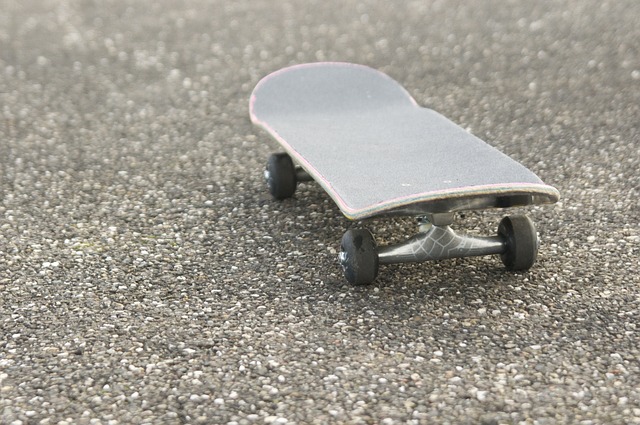 More than 80 percent of women living in Afghanistan cannot read or write. The nonprofit Skateistan takes a unique approach to this issue by engaging young girls through an exhilarating activity: skateboarding. Founded by an Australian named Oliver Percovich, Skateistan has drastically changed the lives of many young Afghan girls since its inception in 2007. The project developed organically as Percovich saw that young girls needed opportunities for both education and empowerment. In a country where half the total population is under the age of 16, this need is significant and pressing. While the prospect of skateboarding provides the hook that interests girls in the organization, instructors use the skateboard as a way of introducing them to new ideas and encouraging them to attend school.
More than 80 percent of women living in Afghanistan cannot read or write. The nonprofit Skateistan takes a unique approach to this issue by engaging young girls through an exhilarating activity: skateboarding. Founded by an Australian named Oliver Percovich, Skateistan has drastically changed the lives of many young Afghan girls since its inception in 2007. The project developed organically as Percovich saw that young girls needed opportunities for both education and empowerment. In a country where half the total population is under the age of 16, this need is significant and pressing. While the prospect of skateboarding provides the hook that interests girls in the organization, instructors use the skateboard as a way of introducing them to new ideas and encouraging them to attend school.
About 400 students participate in Skateistan classes each week, and nearly half of them are girls. The skateboarding classes are offered in the afternoon as a sort of reward for the children after attending school. While the educational encouragement is important, the feeling of freedom offered by the skateboard is just as important. Girls in particular often enter the program quiet, timid, and unconfident. The pride and excitement that comes with learning how to skate and to do more difficult tricks does wonders for a child’s sense of self and her confidence in her abilities to learn and excel.
One of the most impressive feats of Skateistan is its way of empowering young women to assist other Afghan girls. One of the top female skateboarders in the country got her start with Skateistan after a volunteer approached her on the streets of Kabul as she was selling gum and tea. The volunteer brought her into the program, where she distinguished herself as a skilled skateboarder and eventually became an instructor. When her father put pressure on her to continue working to help support the family, he was surprised to see how much money she earned as an instructor. She and her sister, also an instructor, are now the family’s primary breadwinners, and their mother is happy to see them off the streets before they hit puberty, as young Afghan women often experience harassment when out in public.
These young girls are not the only success story from Skateistan. Thousands of Afghan girls have participated in the program and have learned the value of taking risks. Learning how to skateboard is all about trying new things in a safe, controlled environment. Even participating in Skateistan is a bit of a risk, because girls in Afghanistan are discouraged from flying kites, riding bikes, and engaging in several other activities that boys are permitted to do. However, skateboarding, a Western invention, is new to the culture and there are no rules against it. Even so, many girls are met with disapproving stares from onlookers, and some have even reported physical violence from their male family members. These girls served as trailblazers and were so enamored with skateboarding that they continued to practice, despite encountering disapproval and punishment. Eventually, more parents grew to accept the activity, especially after they saw how happy it made their children.
Percovich purposefully kept his program as culturally neutral as possible and avoided introducing Western ideas, or teaching the children about Western skateboarding stars. He wanted them to develop their own, uniquely Afghan skateboarding subculture. As he has said in interviews, many of the girls would talk at length about how much they loved their country and wanted to find good jobs so that they could make a living and stay there. He also witnessed how the shared activity of skateboarding slowly broke down cultural divisions. Socioeconomic background, ethnicity, and gender are all typical lines of division in Afghan culture, but Percovich saw that Skateistan was attracting wealthy and poor children, young girls and boys, and both Pashtuns and Tajiks. Through their shared passion, they overcame typical boundaries and formed bonds of friendship.
Today, Skateistan has three main programs that help it achieve its goal of combining education, empowerment, and fun. The first is Skate and Create, which combines an hour of skating with an hour in the classroom to teach children crucial problem-solving skills. Children can also participate in Back to School, an accelerated learning program that covers three years of primary school material in one year, so that participants can make up for time lost and re-enroll in local schools. The third program is Youth Leadership, which trains young people to become volunteers and staff for the organization. This latter program is especially important for young girls and helps the organization maintain a safe and neutral space for learning and self-discovery.
Skateistan also encourages its students to participate in other programs. Recently, two teams, one from the Youth Leadership program and the other from the Back to School program, participated in the global Micro-Tyco entrepreneurial challenge, which asked teams to raise money using only a single euro as startup capital. This experience allowed many students, girls and boys, to learn about the basics of entrepreneurship and develop skills that will prove indispensable later in their lives. Many of the students pulled on prior experience selling items in the streets to create sales plans and analyze which products people wanted.
